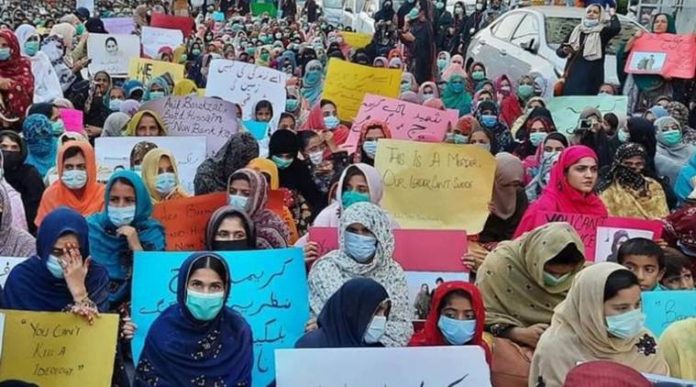
Quetta, Dec 18 (NVI) Pakistan-occupied Balochistan and Karachi, the capital of Sindh Province, saw an alarming number of 98 enforced disappearances and 12 extra-judicial killings in the month of November by the Pakistan Army and its affiliates as part of their continued policy of ‘kill-and-dump’, according to a report.
The monthly report by Paank, the Human Rights Department of Baloch National Movement (BNM), has documented the cases of these enforced disappearances and extra-judicial killings, said a statement issued by the BNM.
According to the report, the Pakistan Army and its affiliates continue to employ their ‘kill-and-dump’ policy under the controversial ‘Operation Silence.’
The practice of enforced disappearances involves illegally picking up individuals, torturing them in illegal confinement, executing them extrajudicially, and discarding their bodies in remote locations to silence dissent.
Among the 12 documented extra-judicial killings were Muhammad Nawaz, Ghulam Buzdar, and Jafar Marri, who were abducted and killed on November 6 in Musakhel, it said.
Bashir Ahmed, who had been missing since May from Gwadar, was found dead on November 23 in Awaran.
A particularly distressing case involves 16-year-old Israr Baloch, detained by the Counter Terrorism Department and later killed.
The report emphasizes that these military tactics are not limited to targeting insurgents but also extend to civilians, fostering an atmosphere of fear and employing collective punishment.
The military’s use of state-backed death squads, comprising criminal collaborators, further deepens the crisis.
These groups not only engage in acts of violence but are also implicated in illegal activities such as theft and drug trafficking, operating with near-total impunity.
Communities across Balochistan remain devastated by the loss and uncertainty surrounding their loved ones.
Paank’s data suggests that the actual number of disappearances and killings may be significantly higher, as many cases go unreported due to fear of retaliation.
The Baloch National Movement called for urgent international attention to address the escalating violence and hold those responsible accountable.
Human rights advocates warn that global intervention is critical to ending these atrocities and ensuring justice for the affected families and communities. (NVI)





